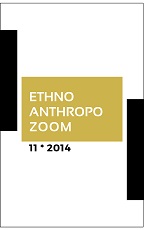POLITICAL ECONOMY AND ECOLOGY OF SUGAR COOPERATIVES IN MAHARASHTRA
POLITICAL ECONOMY AND ECOLOGY OF SUGAR COOPERATIVES IN MAHARASHTRA
Author(s): Peter SimoničSubject(s): Anthropology
Published by: Институт за етнологија и антропологија, Универзиетет »Св. Кирил и Методиј«
Keywords: sugarcane; Marathi; Maharashtra; India; monoculture; communalism; neoliberalism; green revolution; health.
Summary/Abstract: Cooperatives were frequent and successful ways of organizing the sugarcane industry in Maharashtra. During Indian socialism, local self-organization was an important political and economic tool for development and against market egoism. Neoliberalism went in the opposite direction, toward the dismantling of the economy of the community and the privatization of resources and profits. A distant look over the 20th century reveals the interdependence of monocultural agronomics, nationalism and social stratification. In both cases respected society has failed to address the important dilemmas of environmental sustainability and health. Analysis alone of the technological and economic factors of rural development is not enough to explain the success and setting of a certain industrial plant, but religion, kinship, political mythology and ideology are considered as well.
Journal: EthnoAnthropoZoom / ЕтноАнтропоЗум
- Issue Year: 2014
- Issue No: 11
- Page Range: 9-37
- Page Count: 15

